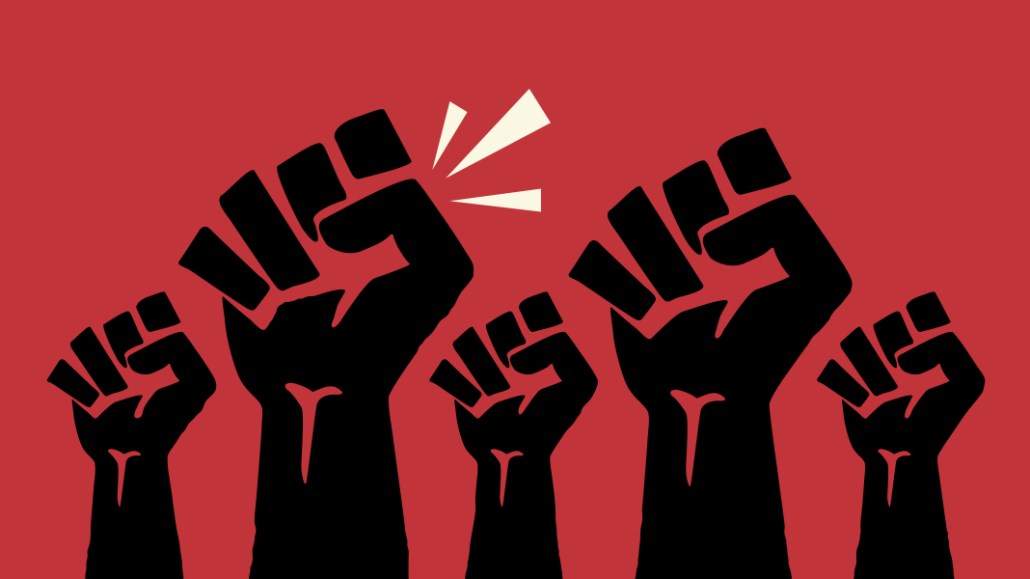Save 50% on a 3-month Digiday+ membership. Ends Dec 5.
‘This could happen to you tomorrow’: Why agencies need to take note of client exits at The Richards Group

This Future of Marketing Briefing covers the latest in marketing for Digiday+ members and is distributed over email every Friday at 10 a.m. ET. More from the series →
This past summer, ad agencies and holding company executives made public commitments to not only root out racism but promises to enact real change and make their shops truly diverse and inclusive.
Now would probably be a good time to start acting on those promises, according to diversity and inclusion advocates, who say that agencies looking to avoid being the next shop to be outed for unaddressed internal issues like The Richards Group need to look inward.
In case you missed it: Stan Richards, founder of The Richards Group, announced late last week that he would be stepping back from his namesake Dallas, Texas-based agency. The news followed a week of controversy for the independent agency, spurred by a comment Richards made during a creative review of work for Motel 6. Per a report by Ad Age, longtime client Motel 6 fired the agency after word spread that Richards, 88, allegedly said the proposed work for Motel 6 was “too black” for the chain’s “significant white supremacist constituents.” After that report, clients including Home Depot and Keurig Dr. Pepper also cut ties with the shop.
If you’ve asked diversity and inclusion advocates how to change the ad world and make it truly diverse and inclusive, you’ve likely heard that agencies need to be held accountable by their clients. With clients leaving The Richards Group, has been dealt a significant blow of action.
“I’ve often said that the industry will not be motivated to change until it hurts in the wallet,” said Nancy Hill, founder of the consultancy The Media Sherpa and former 4A’s president. “The only way that happens is clients holding their agencies accountable. What will be interesting to see is if those clients put some accountability measures into the contracts of the next agencies they hire.”
What the clients do next will show whether or not the clients are leaving the agency as a PR move or if there is a sincere desire to work with agencies that are truly diverse and inclusive.
“They can make lofty comments, but some of these clients were there for 20 years,” said Derek Walker, founder of Brown and Browner. “There should be an organization holding these clients to be more diverse at their next agencies. That will be the test of if they are just jumping ship because it looks bad to be associated with the agency now or if they are actually principled. That’s where the struggle is: I’m hoping other clients are looking at this and wondering, What do our agencies look like and what are they saying?”
Ad position: web_incontent_pos1
Agencies and clients alike should be looking at the makeup of their teams, examine what’s being said during meetings and figuring out where they can improve when it comes to diversity and inclusion.
“The lesson is that this could happen to you tomorrow,” said Cindy Gallop, CEO and founder of If We Ran the World. “This could be you in your agency or holding company tomorrow. We are at a tipping point. We are in a different time. You need to act now to make all of those promises that you have failed to deliver on over the years. You need to start now to root out systemic racism, sexism, homophobia, ableism, from the top down. Every single agency leader should be taking a look at themselves and say, “Fuck me, I need to change.”
Per Gallop, the same goes for clients, especially those that have left The Richards Group. “You want to grill the new agency and understand exactly how they operate, how anti-racist, anti-sexist, anti-homophobic their culture is,” said Gallop. “You want to be crystal clear and sure about that before giving them your business. Don’t think you’re doing a good thing when you just finally take your business away when something like this emerges.”
As agencies and clients alike examine their own makeup and internal issues, it will likely be a bumpy ride — but doing so is crucial. “The status quo is being challenged at this moment,” said Ericka Riggs, foundation and inclusion director at the Ad Club. “There are a lot of growing pains as a result of that. It’s necessary.”
More in Marketing

Ulta, Best Buy and Adidas dominate AI holiday shopping mentions
The brands that are seeing the biggest boost from this shift in consumer behavior are some of the biggest retailers.

U.K. retailer Boots leads brand efforts to invest in ad creative’s data layer
For media dollars to make an impact, brands need ad creative that actually hits. More CMOs are investing in pre- and post-flight measurement.
Ad position: web_bfu



